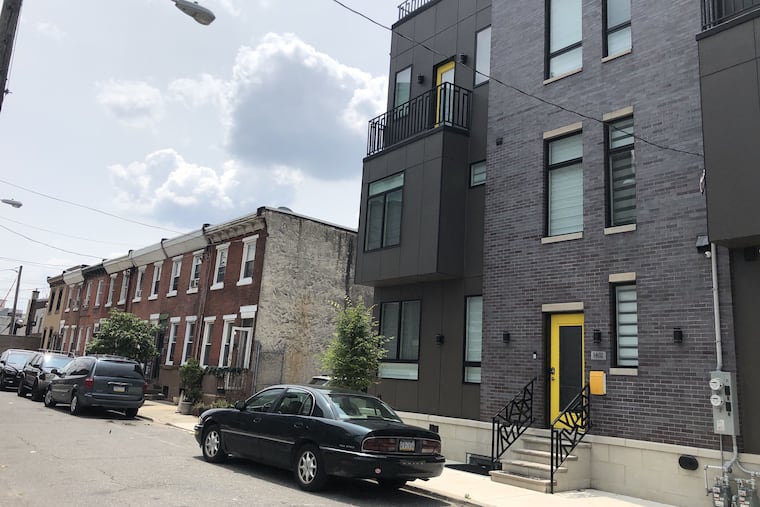Philadelphia developers are scrambling to limit the changes to the 10-year tax abatement
Philadelphia real estate developers are looking to lessen the financial hit they could suffer under proposed changes to a controversial tax break that City Hall is taking up this week.

Philadelphia real estate developers are looking to lessen the financial hit they could suffer under proposed changes to a controversial tax break that City Hall is taking up this week.
City Council is mulling the biggest changes to the 10-year tax abatement since its enactment almost 20 years ago. A proposal set for a hearing Tuesday would take the current abatement — which provides a 100% tax break on new residential construction for 10 years — and effectively cut it almost in half by phasing out 10% of the value every year.
But the Building Industry Association, a trade group of developers, is calling for leaving the current abatement for new residential construction fully intact for five years. It also wants to delay and reduce the proposed phase-down of the tax break, according to the group’s proposed amendment obtained by the Inquirer.
The lobbying effort comes as developers and builders’ unions grapple with whether to support some reform now — or oppose it and risk that a new City Council might try to make even bigger changes next year. The proposed legislation would not change the tax abatement for commercial or industrial development or rehabilitation.
Council President Darrell L. Clarke, who has 14 co-sponsors for the current bill, hope to pass legislation before the end of the year.
“I think it’s safe to say that, even though we disagree with this policy and are trying to make it better, there probably is a better chance to make it better under this Council versus next," said Chris Somers, president of the Greater Philadelphia Association of Realtors, which has offered its own separate amendment that would also maintain the full tax break for several years before tapering it down.
Changes to the tax incentive have long been feared, and strongly opposed, by the real estate industry, developers, and the city’s building trade unions. Some kind of change seems likely, with four newcomers — including Working Families Party member Kendra Brooks, who campaigned on eliminating the abatement entirely — set to join Council in January.
Proponents of the abatement say it pays for itself because it acts as a development incentive that brings more money into Philadelphia over time. Opponents say it’s become a tax break for wealthy residents, as well as fuel for the gentrification of neighborhoods.
Joe Grace, a spokesman for Council President Darrell L. Clarke, said it would be inappropriate to comment on proposed changes to the legislation ahead of Tuesday’s hearing.
“Any debate as to any potential changes to the bill will take place then," he said.
» READ MORE: Philadelphia City Council is about to see some big changes
BIA’s proposed amendment would result in a 100% tax break for five years, followed by 20% reductions in the sixth, seventh, and eighth years, before the abatement would be only 10% in the 10th and final year. In other words, while the legislation as currently written would cut the total value of the abatement down to about 55% of its value now, the BIA’s proposed amendment would maintain 71% of the value.
“The bill as drafted is a major reduction to the abatement and will have a severe and detrimental effect on the local economy and especially on the thousands of collateral real estate businesses — realtors, lenders, insurance agents, title, construction, and suppliers — that are dependent on the residential development industry,” Jim Maransky, BIA’s president, will say in prepared remarks for Tuesday’s hearing.
BIA is also pushing to delay when the legislation would take effect, pushing it back from July of next year to July 1, 2021.
“Please keep in mind that the vast majority of the development you currently see in Philadelphia is simply not viable without the abatement,” Maransky will say in his planned testimony. “If it must be modified, it is important that it be done slowly, gradually, thoughtfully, and uniformly.”